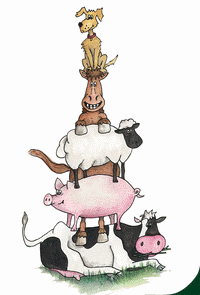Equine Influenza outbreak update
Following three confirmed Equine Influenza (flu) outbreaks in vaccinated horses in a British racing yard on 6 February 2019, the British Horseracing Authority (BHA) took the decision to cancel racing at all British racecourses today. This was a precautionary measure to restrict the movement of Thoroughbred race horses and prevent any further spread of the flu virus within the racing community. This is a standard contingency in the event of an infectious disease within UK racing, in order to assess the scale and severity of the outbreak. Results of tests over the next 24 hours will help the industry decide on any further action.
It is not currently being recommended that other, non-racing, equine events are cancelled but this might change depending on how the disease develops
The Animal Health Trust have said they fully support this decision and are keeping the BHA and the BHA’s industry veterinary committee advised on developments as and when they occur.
The AHT’s advice to horse owners remains the same. Horse owners are being urged to remain extremely vigilant and should be aware of the clinical signs of EI which include harsh, dry coughing, nasal discharge, lethargy and an increase in temperature (>38.5°c). These clinical signs may be mild and not all horses will present with all of these. If a horse owner is concerned they should consult their vet as soon as possible who can take a swab and blood sample and send it for testing, free of laboratory charges, to the Animal Health Trust’s equine influenza surveillance scheme which is funded by the Horserace Betting Levy Board.
Equine flu is a highly contagious respiratory disease caused by the equine influenza virus. The virus is spread from horse to horse via respiratory droplets by direct contact as well as coughing and via indirect contact where appropriate biosecurity is not being followed. The virus relies on this transmission to new horses to survive and one of the most notable features of flu is the very quick spread of clinical signs in groups of horses and its ability to spread large distances in the air. Therefore horse owners are encouraged to consider their existing biosecurity arrangements in their yard. This includes ensuring they practice good general hygiene and isolating any horses showing flu-like signs. The AHT is also recommending horse owners re-vaccinate their horse if their vaccination was carried out over 6 months ago, in order to maximise the chance of having protective immunity.
Dr Richard Newton, Director of Epidemiology and Disease Surveillance, at the Animal Health Trust, said “The decision by the British Horse Racing Authority to cancel racing today is necessary in order to restrict, as far as possible, the risk of further spread of equine flu whilst we understand better the situation on the ground. Our advice to horse owners is to be extremely vigilant and to follow recommended guidelines on how to detect and prevent the spread of this infectious disease. If horse owners are concerned they should contact their vet immediately for advice.”
Advice on equine flu, including information on precautions horse owners can take can be found at www.equiflunet.org.uk

